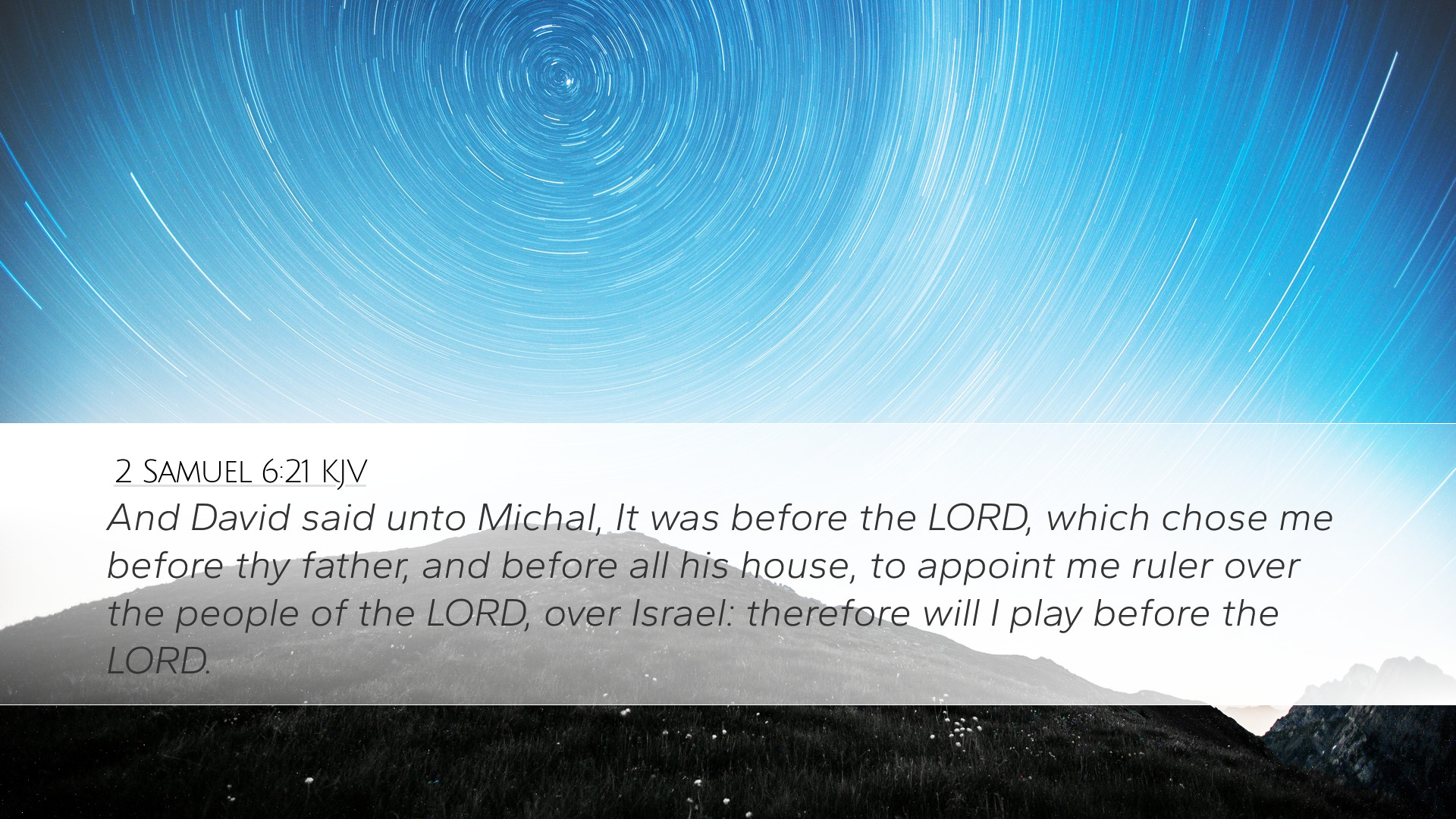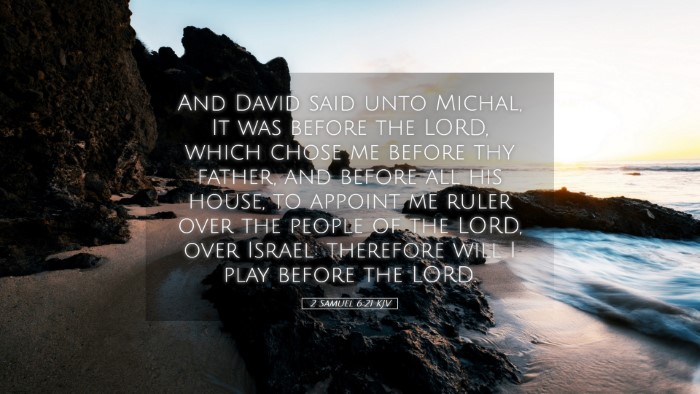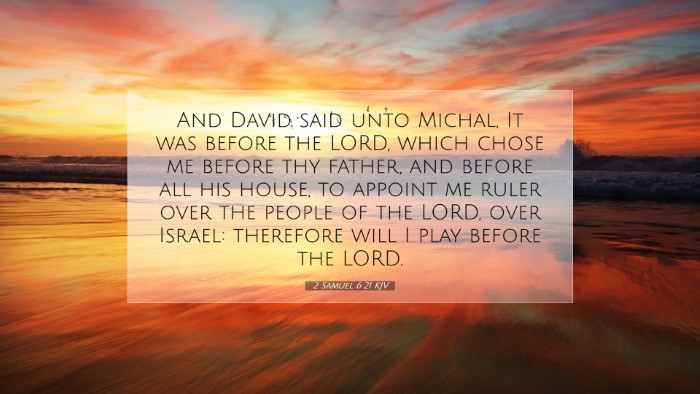Commentary on 2 Samuel 6:21
Verse: "And David said unto Michal, It was before the LORD, which chose me before thy father, and before all his house, to appoint me ruler over the people of the LORD, over Israel: therefore will I play before the LORD."
Introduction
This verse captures a pivotal moment in King David's reign, wherein he defends his public expression of worship against the criticism of Michal, Saul's daughter and his wife. The interaction not only highlights David's passionate devotion to God but also illustrates the tensions within his personal relationships stemming from his divine calling.
Contextual Analysis
In the preceding chapters, David successfully retrieves the Ark of the Covenant from oblivion and brings it to Jerusalem, setting the stage for worship and national identity centered around the Lord. His enthusiastic celebration during this event is marked by joy and unreserved expression, which stands in stark contrast to Michal's contempt. Understanding this dynamic is crucial for interpreting David's reply.
Commentary Insights
Matthew Henry's Perspective
Matthew Henry emphasizes David’s unashamed worship and sees it as rooted in his understanding of God’s covenantal choice. He notes:
- The Divine Choice: Henry points out that David acknowledges the Lord chose him above Saul and his lineage. This choice validates David's actions before God as purely worshipful.
- Public Worship: He emphasizes that David's dancing and celebration were acts of reverence directed towards God, highlighting the joy of entering into the presence of the Lord.
- Rejection of Worldly Expectations: Henry discusses David’s disregard for Michal's societal views on royal dignity, indicating that true worship may sometimes conflict with cultural norms.
Albert Barnes' Insights
Barnes provides an exegetical analysis of the text, emphasizing the implications of David's words:
- Justification of Actions: Barnes interprets David’s response as a clear justification of his exuberant behavior, stating that it was not merely for spectacle but a sincere act of devotion.
- Ruler as Servant of God: He illustrates the concept that true leaders must operate under the will of God, suggesting that David views his kingship as a responsibility derived from divine will rather than human entitlement.
- Contrast with Saul: Barnes highlights the distinction between David and Saul, indicating that Saul's demise resulted from rebellion against God, whereas David's actions stem from a heart inclined to please the Lord.
Adam Clarke's Interpretation
Clarke adds further layers to our understanding of this incident:
- Frustration and Conflict: He notes the complex emotional landscape, discussing Michal’s frustration as rooted in her upbringing in the house of Saul, where albeit royal, the relationship with God was compromised.
- Theological Implications: Clarke points out that David’s declaration reveals a profound theological truth: that God’s favor and calling supersede familial loyalty and societal expectations.
- Public versus Private Worship: He raises pertinent questions about the balance between public adoration of God and private dignity, suggesting David’s actions were a healthy challenge to Michal’s narrow view of worship.
Theological Themes
This passage invites various theological reflections pertinent to pastoral practice and biblical scholarship:
- The Nature of Worship: It encourages a broader understanding of worship that encompasses joy, authenticity, and a heart devoted to God, regardless of social expectations.
- Divine Sovereignty: The text reinforces the theme that God appoints leaders according to His sovereign will, serving as a reminder to contemporary leaders to seek divine approval over societal affirmation.
- Living Out Faith Openly: David’s unapologetic worship exemplifies the call for believers to express their devotion freely, challenging the church to reflect on its own worship practices and cultural adaptations.
Application for Pastoral Care
For pastors, this passage serves as a profound reminder to promote freedom in worship among congregants. It prompts questions about how churches hinder or facilitate authentic worship experiences. Additionally, it calls for sensitivity towards cultural tensions existing within congregations and encourages a focus on personal devotion and public witness.
Conclusion
2 Samuel 6:21 holds rich insights for all believers, inviting a deepened understanding of worship, divine calling, and the complexities of human relationships in light of God’s sovereignty. David’s celebration before the Lord teaches us that true praise must be uninhibited and rooted in a personal recognition of God’s grace and purpose in our lives.


